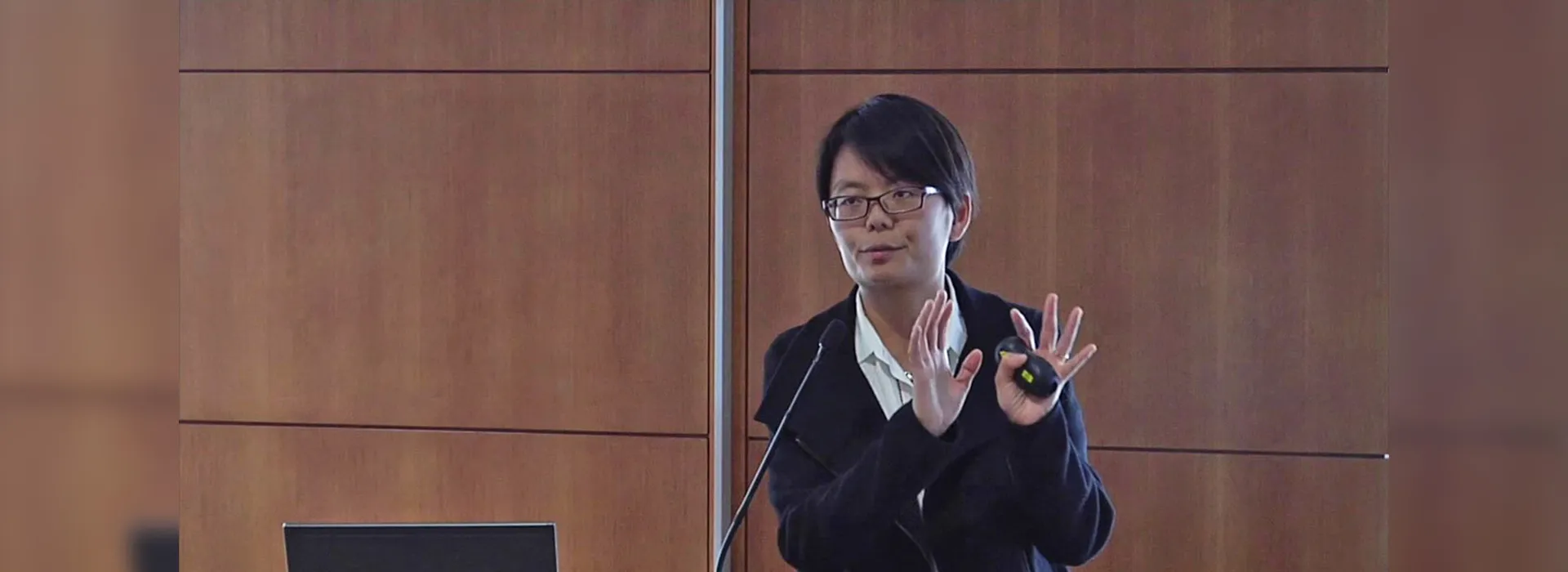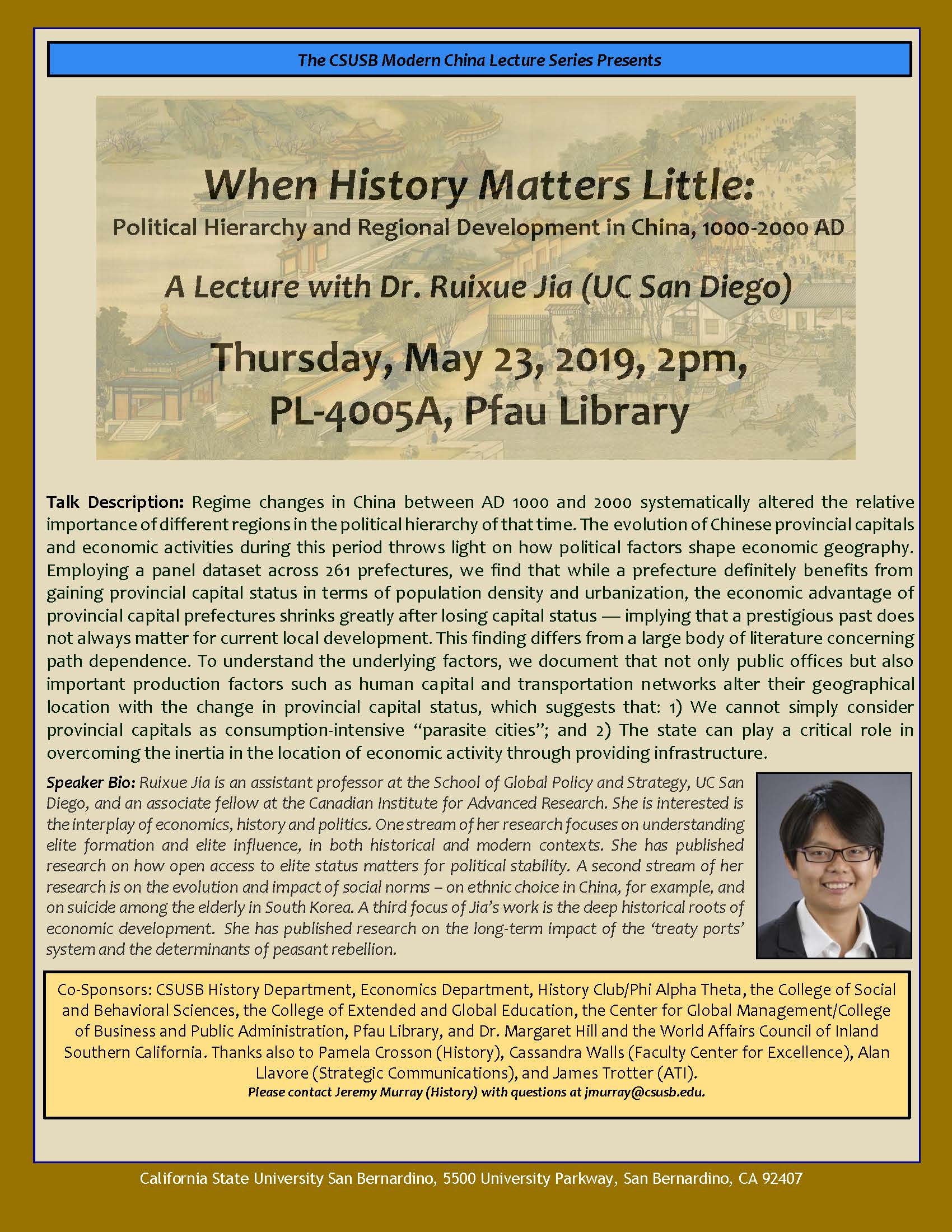Joe Gutierrez Office of Strategic Communication (909) 537-5007 joeg@csusb.edu

The formation of political hierarchy and regional development over a 1,000 year span in China will be the focus of the next Modern China Lecture, set for Thursday, May 23, at Cal State San Bernardino. “When History Matters Little: Political Hierarchy and Regional Development in China, 1000-2000 AD,” will be presented by Ruixue Jia, an assistant professor at the School of Global Policy and Strategy at UC San Diego. Her talk will begin at 2 p.m. at the university’s John M. Pfau Library, room PL-4005. The talk is free and open to the public; parking is $6 at the university. “Professor Jia brings an economist’s voice to the China lecture series, based on her extensive interdisciplinary research,” said Jeremy Murray, associate professor of history and organizer of the lecture series. “The talk will be both grand in scope and precise in analysis. We are lucky to have Ruixue Jia share her work on our campus.” “Regime changes in China between AD 1000 and 2000 systematically altered the relative importance of different regions in the political hierarchy of that time,” according to a description of Jia’s talk. “The evolution of Chinese provincial capitals and economic activities during this period throws light on how political factors shape economic geography.” In addition to her teaching duties at UCSD, Jia is an associate fellow at the Canadian Institute for Advanced Research. She is interested is the interplay of economics, history and politics. One stream of her research focuses on understanding elite formation and elite influence, in both historical and modern contexts. She has published research on how open access to elite status matters for political stability. A second stream of her research is on the evolution and impact of social norms – on ethnic choice in China, for example, and on suicide among the elderly in South Korea. A third focus of Jia’s work is the deep historical roots of economic development. She has published research on the long-term impact of the “treaty ports” system and the determinants of peasant rebellion. The Modern China Lecture Series was initiated to promote awareness of important issues related to China for those on the CSUSB campus and in the community. In the series of more than 40 lectures, workshops, film screenings and roundtable forums since January 2014, China scholars from UC San Diego, UC Riverside, the Claremont Colleges, UCLA, USC, UC Irvine and other institutions have visited the CSUSB campus to share their expertise and opinions. Speakers in the series have included specialists in history, economics, political science, philosophy, finance, security studies, literature, anthropology and other fields. The series cosponsors are the CSUSB Department of History, the Department of Economics, the History Club/Phi Alpha Theta, the College of Social and Behavioral Sciences, the College of Extended and Global Education, the Center for Global Management/Jack H. Brown College of Business and Public Administration, John M. Pfau Library, and Margaret Hill and the World Affairs Council of Inland Southern California. For more information on the Modern China Lecture Series, contact Jeremy Murray, associate professor of history, at jmurray@csusb.edu. For more information on Cal State San Bernardino, contact the university’s Office of Strategic Communication at (909) 537-5007 and visit inside.csusb.edu.
